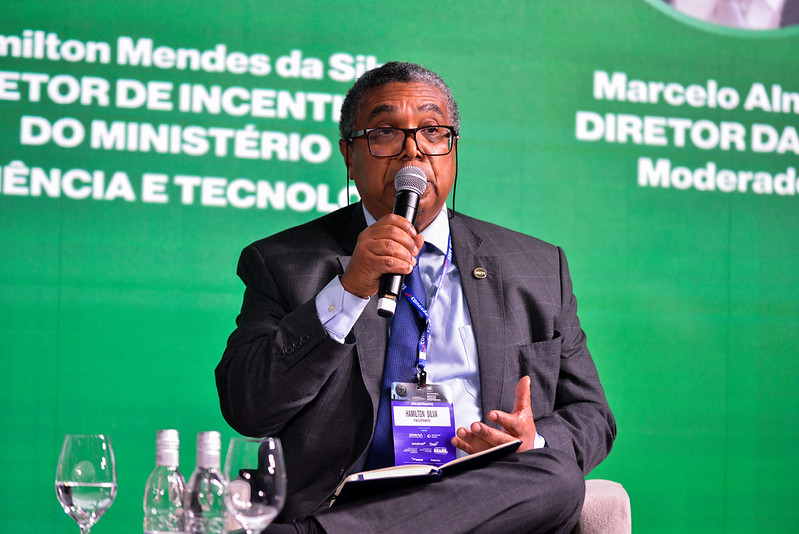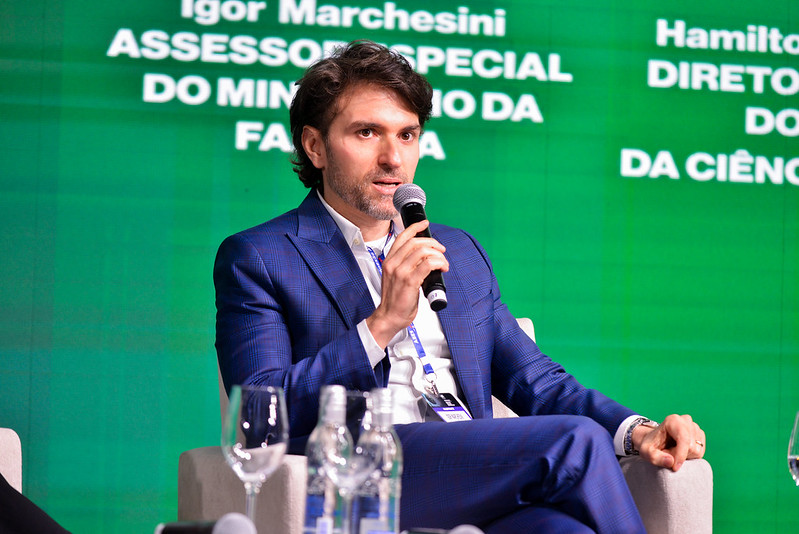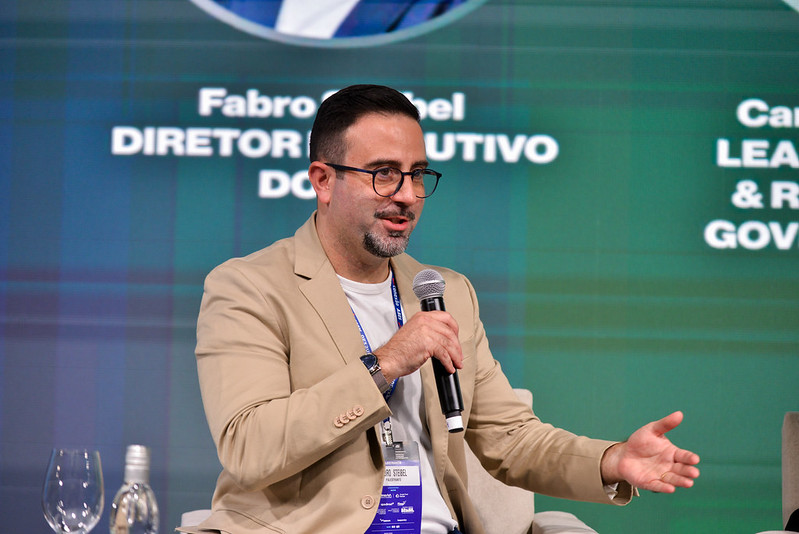
The panel "Global Technology Regulation: Harmonizing Innovation, Security, and Rights," held at the ABES Summit 2025 and moderated by Marcelo Almeida, Director of Institutional Relations at ABES, concluded with a consensus among the panelists: technology regulation needs to be dynamic, collaborative, and guided by principles that ensure responsible innovation. In a world of multiple regulations, the challenge lies in building bridges—not barriers—between different governance models.

According to Hamilton Mendes da Silva, Director of Incentives for Digital Technologies at the Ministry of Science and Technology, regulation is an essential tool for balancing technological advancement with social objectives. "It must prevent technology from being promoted as an end in itself, without considering the protection of consumer rights and the promotion of sustainable development," he stated. For him, the greatest challenge is ensuring that regulation does not inhibit innovation, but rather fosters it. "Regulation needs to preserve key elements, such as access to research and public funding, in addition to encouraging entrepreneurship and international cooperation—especially for countries like Brazil, which are still trailblazers in many fields," he added.

For Igor Marchesini, Special Advisor to the Ministry of Finance, regulation can be a driver of innovation—as long as it's well-designed. He shared a personal experience as an entrepreneur in the payments sector: "We started with four people in a garage, and five years later, we had more customers than Cielo. This was only possible thanks to structured and collaborative regulation," he said. According to Marchesini, the Brazilian regulatory environment, especially the Central Bank's involvement, was crucial to the business's success. In contrast, he recounted the challenges faced in Europe, where excessively bureaucratic regulation ended up stifling innovation. "The good news is that Brazil already has good examples of regulation that work. We don't need to look only abroad to learn," he concluded.

Caroline Rocabado, leader in Privacy and Responsible AI Governance at DASA, believes it's necessary to broaden the concept of innovation in the regulatory debate. "Many technologies we use today have been around for decades and operate without causing harm or legal uncertainty. This is also innovation," she said. She argued that regulation should consider both the future and the established past, ensuring legal certainty for technologies already integrated into society. "In healthcare, for example, we already have robust standards that regulate the use of AI, such as Anvisa, the LGPD, and the Code of Medical Ethics. We are not against the AI regulation bill, but rather in favor of a critical discussion that takes into account the regulatory history," she stated.

Fabro Steibel, Executive Director of ITS, reflected on the speed of technological transformations. "I like the phrase 'Artificial Intelligence is a moving target.' When we think about regulating AI, we're trying to address something that's always changing," he said. According to Steibel, European regulation began with descriptive AI, but now faces challenges with generative models and autonomous agents. "What are we regulating? The past or the future? Rigid, backward-looking regulation is ineffective. If the Brazilian Internet Civil Rights Framework had been created to regulate Orkut, it would have become obsolete in six months," he summarized.
About ABES SUMMIT
The 15th edition of ABES SUMMIT, held in October 8th at the JW Marriott, in São Paulo, had as its central theme “Digital Frontiers – Geopolitics, Technology and Sustainability”. The event promoted a day of immersion for CEOs, leaders and government representatives, aiming to highlight the power of technology to accelerate business and economic transformation. In a scenario of global recalibration where technology and geopolitics intertwine, the ABES SUMMIT discussed practical strategies to address challenges such as the dominance of Artificial Intelligence (AI) and Agentic AI, a cybersecurity global, regulation and public policies, and the qualification of workforce. The focus was on the strategic role of Brazil, which can establish itself as a global protagonist in energy transition, in the preservation of biodiversity and digital advancement, due to its clean matrix and innovation ecosystem. The ABES SUMMIT 2025 featured free online broadcast it's the BMV seal, offsetting 100% of environmental impacts.
Sponsors: ApexBrasil, Finep, Embrapii, Kaspersky, Nic.br, Caesbra Benefits, Banco do Brasil, Devfy and Digiforte.
Watch the ABES SUMMIT 2025 panels: https://youtube.com/playlist?list=PL2X1JJqBpAkMM7gQhOIAmH9pZwpIG4jQ8&si=i4xIh0sAI-kunjvj

















